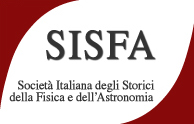Speaker
Description
Until a few decades ago, it was widely believed that the period of the so-called “Scientific Revolution” had introduced a radical caesura within the way of doing science compared to the previous tradition, definitively consecrating the rational scientific method and discarding all those magical, theological and alchemical approaches that had impregnated the scientific modus operandi up to that time. Indeed, even today we tend to consider the growth of the modern scientific movement as one of the main manifestations of that process of demystification of the worldview that characterized the XVII century. However, some research conducted in recent decades has shown that this belief is false or, at the very least, inappropriate: if one studies this period closely, one can indeed identify numerous historiographical errors arising from the application of anachronistic or a posteriori notions or categories, which are part of the achievements and theoretical-conceptual developments of a later tradition, which looks at the past by filtering it through lenses that are inadequate. Thus, the aim of my paper will be as follows: to demonstrate and restore the complexity of the figure of Isaac Newton and to identify the purpose and importance that alchemical and theological studies had within his research. As I will demonstrate, indeed, the contradiction between “Newton the Alchemist” and “Newton the Modern Scientist” disappears if we don’t apply to him anachronistic categories such as “science” and “scientist”, returning a holistic image of him that is closer to the true.

